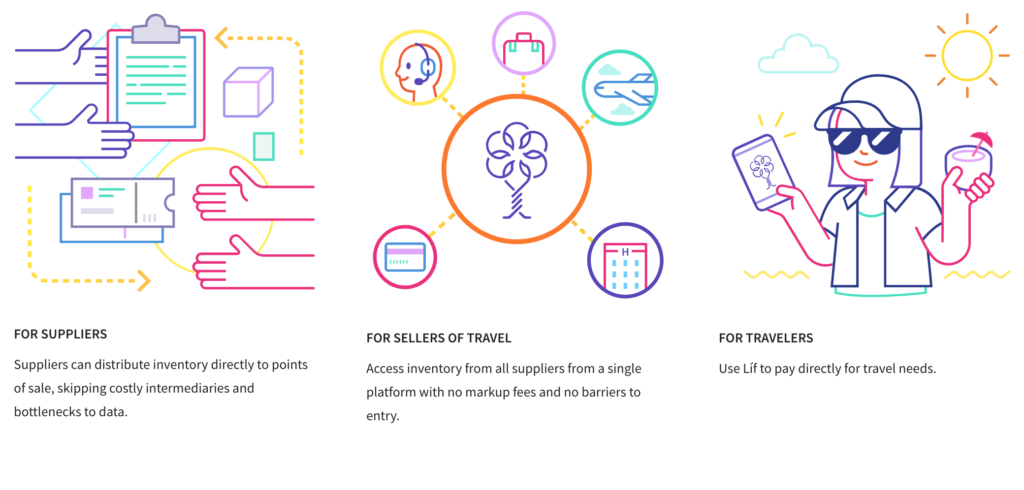In 2016 the global travel and tourism industry reached a value of $7.6 trillion. Unsurprisingly, many startups have been trying to find out how they can fit in the industry and capitalize on its immense market size.
Despite a few success stories, such as Airbnb, the travel industry has historically proven difficult for startups to break into as it is dominated by a few very large players. According to a whitepaper by Winding Tree, the travel industry is dominated by only five companies: Priceline and Expedia (which control 95 percent of the online travel agency market), in addition to Amadeus, Sabre, and Travelport (the top three players in the global distribution sector of the travel industry).
While this oligopoly has deterred many startups from attempting to enter the industry, other startups have tried to find their niche. Arrivedo, for example, aims to help hotels by bridging the gap between guests and local hosts. There are also companies such as Sygic that help with GPS and travel planning by finding the best routes for your trip.
One new startup, however, is not looking for a niche, but rather to turn the entire industry on its head. Winding Tree uses blockchain technology to establish a decentralized marketplace that connects consumers to suppliers without the need for middlemen like the five travel giants mentioned above. By eliminating these distributors, the startup aims to reduce costs for both consumers and suppliers, providing increased access of information to sellers of travel.

Screenshot taken from windingtree.com.
In doing so, the company intends to benefit travel suppliers, agencies, and consumers themselves. Additionally, the company was “built with the needs of travel startups in mind.” As such, Winding Tree aims to break down the current oligopoly that defines the market, and provide opportunities for innovation within the industry.
According to its founders, Winding Tree is a “blockchain-powered B2B marketplace for travel inventory (air travel, hotel rooms, car rentals, tours and activities, etc).” Winding Tree is not an application, nor does it have a user interface; rather, it is a set of APIs over which other developers for travel companies can build their own applications to offer their companies’ products and services directly to consumers.
After a company has developed on top of the API provided by Winding Tree, suppliers pay a minimal fee to post their listings, in support of the miners who work to verify and complete the blockchain transactions. The fee is paid in the company’s own token — Líf — built on public Ethereum, which agencies or individuals must also use to pay when booking any type of inventory on the platform.
Interestingly, Winding Tree would not earn any money through the transactions that occur, despite its intention to effectively eliminate intermediaries like Airbnb, Priceline, and Expedia that normally take a healthy cut of the deals they broker. Rather, Winding Tree would earn money by selling market reports and/or selling proprietary extensions and services to help developers build effective solutions on the platform.
On November 1, the company will have its Token Generation Event for its Líf coin, which will last two weeks until November 15. The company writes, “We firmly believe that infrastructure projects, like Winding Tree, must be supported by the organizations and individuals that will use them. Therefore we will raise money via a token sale as opposed to funding from traditional investors.”
Winding Tree is based in Switzerland as a non-profit foundation aspiring to revolutionize the travel industry. If successful, the startup has the potential to turn the industry on its head – and if reports from VentureBeat and Coinspeaker are anything to go by, it could have a promising future ahead of it.








